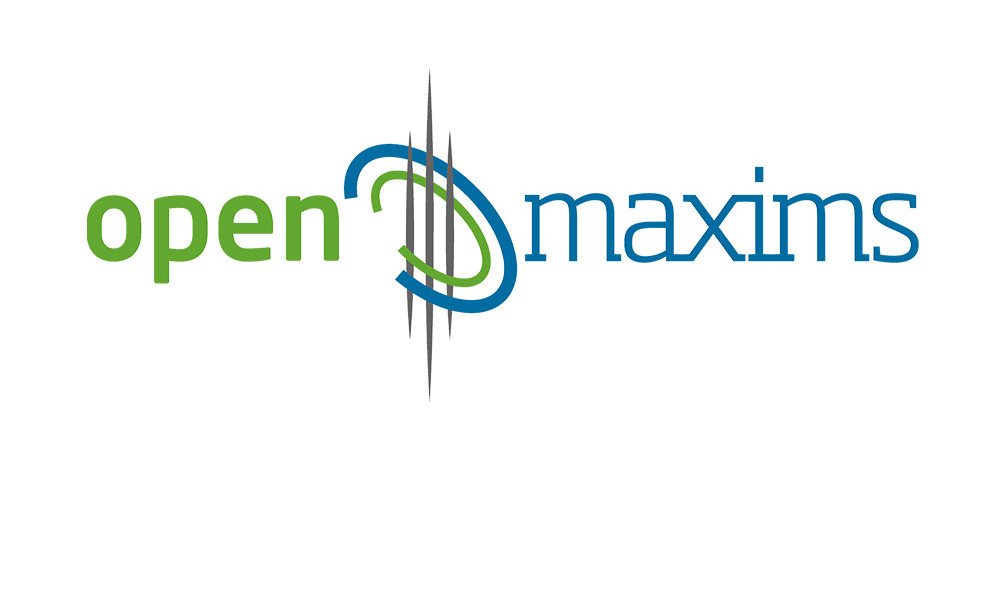Github
See the following -
How Open Source Can Solve Silicon Valley's Engineering Crisis
Silicon Valley may think itself the center of the technology universe, but 76% of open-source development happens elsewhere, a rich talent pool for engineer-hungry startups...
- Login to post comments
How Open Source Development Is Becoming More Social
Most people do not think of software developers as being high on the “social” scale. In fact, the (misinformed) stereotype for a typical developer is that of the introverted geek. But in many ways, particularly with open source developers, this couldn’t be further from the truth. Read More »
- Login to post comments
How openFDA's 'Crazy Collision' of Silicon Valley and Federal Culture Is Reshaping the Regulator
 Over the past two years the reputation of the IT department at the FDA has changed rapidly. Once best known for burning through CIOs and receiving slapdowns from the congressional watchdog, the FDA is now garnering plaudits for its embrace of agile and open development. This new way of thinking is central to--and to an extent responsible for--the recently unveiled precisionFDA initiative. Bio-IT World dug into the genesis of precisionFDA and its implications in a feature this week.
Over the past two years the reputation of the IT department at the FDA has changed rapidly. Once best known for burning through CIOs and receiving slapdowns from the congressional watchdog, the FDA is now garnering plaudits for its embrace of agile and open development. This new way of thinking is central to--and to an extent responsible for--the recently unveiled precisionFDA initiative. Bio-IT World dug into the genesis of precisionFDA and its implications in a feature this week.
- Login to post comments
How Time-series Databases Help Make Sense of Sensors
 Infrastructure environments' needs and demands change every year and systems become more complex and involved. But all this growth is meaningless if we don't understand the infrastructure and what's happening in our environment. This is where monitoring tools and software come in; they give operators and administrators the ability to see problems in their environments and fix them in real time. But what if we want to predict problems before they happen? Collecting metrics and data about our environment gives us a window into how our infrastructure is performing and lets us make predictions based on data. When we know and understand what's happening, we can prevent problems, rather than just fixing them...
Infrastructure environments' needs and demands change every year and systems become more complex and involved. But all this growth is meaningless if we don't understand the infrastructure and what's happening in our environment. This is where monitoring tools and software come in; they give operators and administrators the ability to see problems in their environments and fix them in real time. But what if we want to predict problems before they happen? Collecting metrics and data about our environment gives us a window into how our infrastructure is performing and lets us make predictions based on data. When we know and understand what's happening, we can prevent problems, rather than just fixing them...
- Login to post comments
How to Create an Internet-in-a-Box on a Raspberry Pi
 If you're a homeschool parent or a teacher with a limited budget, Internet-in-a-Box might be just what you've been looking for. Its hardware requirements are very modest—a Raspberry Pi 3, a 64GB microSD card, and a power supply—but it provides access to a wealth of educational resources, even to students without internet access in the most remote areas of the world. I recently had a chance to visit with developers Adam Holt and Tim Moody about the project. Adam said this wonderful initiative began with One Laptop per Child at MIT. From there it was forked in 2012 into the School Server Community Edition project, and now it is called Internet-in-a-Box. I learned of the project while attending LinuxConNA last summer in Toronto, where I first met Adam...
If you're a homeschool parent or a teacher with a limited budget, Internet-in-a-Box might be just what you've been looking for. Its hardware requirements are very modest—a Raspberry Pi 3, a 64GB microSD card, and a power supply—but it provides access to a wealth of educational resources, even to students without internet access in the most remote areas of the world. I recently had a chance to visit with developers Adam Holt and Tim Moody about the project. Adam said this wonderful initiative began with One Laptop per Child at MIT. From there it was forked in 2012 into the School Server Community Edition project, and now it is called Internet-in-a-Box. I learned of the project while attending LinuxConNA last summer in Toronto, where I first met Adam...
- Login to post comments
How To Do Software Like Nasa, By Nasa
Forty years after Apollo 11 landed on the moon, Nasa open sourced the software code that ran the guidance systems on the lunar module. By that time, the code was little more than a novelty. But in recent years, the space agency has built all sorts of other software that is still on the cutting edge.
- Login to post comments
How to Grow Healthy Open Source Project Infrastructures
 In 2013 I joined the OpenStack Infrastructure team. In the four years I spent with the team, I learned a considerable amount about the value of hosting an infrastructure for an open source project in the open itself. In 2014 I gave a talk at All Things Open and was interviewed by Jason Baker about how we'd done our systems administration in the open. My involvement on this team led me to advocate for systems administrators to use revision control and learn about tools for working with a distributed team. At the OpenStack Summit in Austin in 2016, our team did a talk on navigating the open source OpenStack Infrastructure...
In 2013 I joined the OpenStack Infrastructure team. In the four years I spent with the team, I learned a considerable amount about the value of hosting an infrastructure for an open source project in the open itself. In 2014 I gave a talk at All Things Open and was interviewed by Jason Baker about how we'd done our systems administration in the open. My involvement on this team led me to advocate for systems administrators to use revision control and learn about tools for working with a distributed team. At the OpenStack Summit in Austin in 2016, our team did a talk on navigating the open source OpenStack Infrastructure...
- Login to post comments
How to Write Documentation That's Actually Useful
Programmers love to write code, but they hate to write documentation. Developers always want to read documentation when they inherit a project, but writing it themselves? Feh! How common is this? A recent GitHub survey found that "incomplete or outdated documentation is a pervasive problem," according to 93 percent of respondents. Yet 60 percent of contributors to the open source code repository say they rarely or never contribute to documentation. Their reasoning, for both the open source projects and their own applications? A common attitude that "documentation is for 'lusers' who don't write good code!"...
- Login to post comments
How WikiFundi Is Helping People in Africa Contribute to Wikipedia
 In developed countries, the ability to access and edit Wikipedia easily is taken for granted, but in many African countries, where access to reliable electricity and broadband are limited, that's not the case. I recently interviewed Florence Devouard, who is working on several open source projects to help close gaps caused by poor access to online information. She is co-leader of the WikiFundi project, as well as other projects related to Wikipedia and Africa, including Wiki Loves Women, a women's information initiative, and Wiki Loves Africa, a media contest that invites the public to contribute photographs, videos, and audio to Wikipedia. All projects are part of the WikiAfrica movement...
In developed countries, the ability to access and edit Wikipedia easily is taken for granted, but in many African countries, where access to reliable electricity and broadband are limited, that's not the case. I recently interviewed Florence Devouard, who is working on several open source projects to help close gaps caused by poor access to online information. She is co-leader of the WikiFundi project, as well as other projects related to Wikipedia and Africa, including Wiki Loves Women, a women's information initiative, and Wiki Loves Africa, a media contest that invites the public to contribute photographs, videos, and audio to Wikipedia. All projects are part of the WikiAfrica movement...
- Login to post comments
If You Build It, They Won't Come: Why Your Open Source Project Needs Better Marketing
 FOSS (free and open source software) conferences are full of talks about how to improve your code, or how you manage your code, or what the latest and greatest languages and tools are. But a successful open source project is about more than good code. First, let's talk about what success is, because success isn't a guarantee. University of Massachusetts faculty members Charles Schweik and Robert English have studied open source projects and their success extensively. In a study of 174,333 projects through 2009, they were able to declare success or abandonment for only 145,475...
FOSS (free and open source software) conferences are full of talks about how to improve your code, or how you manage your code, or what the latest and greatest languages and tools are. But a successful open source project is about more than good code. First, let's talk about what success is, because success isn't a guarantee. University of Massachusetts faculty members Charles Schweik and Robert English have studied open source projects and their success extensively. In a study of 174,333 projects through 2009, they were able to declare success or abandonment for only 145,475...
- Login to post comments
IMS MAXIMS releases improved version of open source EPR (EHR)
 This week sees the release of the latest version of the IMS MAXIMS open source electronic patient record (EPR), openMAXIMS, which includes all of the enhancements made for Taunton and Somerset NHS Foundation Trust. Taunton was the first trust to go live with the software and has been working closely with IMS MAXIMS on the new functionality. The upgraded code is now available on the open source website (GitHub), with many new features, including clinical triage of referrals to direct patients to the appropriate service and care according to clinical priority, and pre-operative assessment for theatres, ensuring patients are fit and suitable for surgery.
This week sees the release of the latest version of the IMS MAXIMS open source electronic patient record (EPR), openMAXIMS, which includes all of the enhancements made for Taunton and Somerset NHS Foundation Trust. Taunton was the first trust to go live with the software and has been working closely with IMS MAXIMS on the new functionality. The upgraded code is now available on the open source website (GitHub), with many new features, including clinical triage of referrals to direct patients to the appropriate service and care according to clinical priority, and pre-operative assessment for theatres, ensuring patients are fit and suitable for surgery.
- Login to post comments
Is GitHub Government’s Next Big Thing?
With recent attempts from the White House to bring a more agile approach to government technology, U.S. Chief Information Officer Steven VanRoekel’s “Shared First” initiative, released in December, coupled with the federal government’s new digital strategy, the door may slowly be opening to a more widespread public sector collaborative coding environment, such as the one provide by San Francisco-based startup GitHub.
- Login to post comments
Jim Zemlin: 2014-The Open Source Tipping Point
For the last ten years open source has expanded into more and more segments of the computing industry. But as we review 2014, a new story emerges: software development has fundamentally shifted toward an open source model. Especially for the infrastructure software used for scale-out computing, open source is the de facto choice; in fact, it’s virtually impossible to find examples of scale-out infrastructure that is not open source. Read More »
- Login to post comments
JKool LLC. Announces An Easy-To-Use, Open Source, SaaS Solution For Quickly Capturing The Business Value Of Big Data
jKool, LLC. today announced its new, software-as-a-service (SaaS) solution for analyzing Big Data in real time. jKool™ is designed to spot the patterns in data that lead to actionable insights...
- Login to post comments
Kickstarter Doesn't Do Healthcare, MedStartr Seizes Opportunity
MedStartr is a new way to fund healthcare initiatives—think Kickstarter for doctors, patients, and what ails them. It's headed up by Mike Pence and Alex Fair, two guys of different backgrounds and expertise who've come together to share the same dream and passion for helping those in physical need. Read More »
- Login to post comments